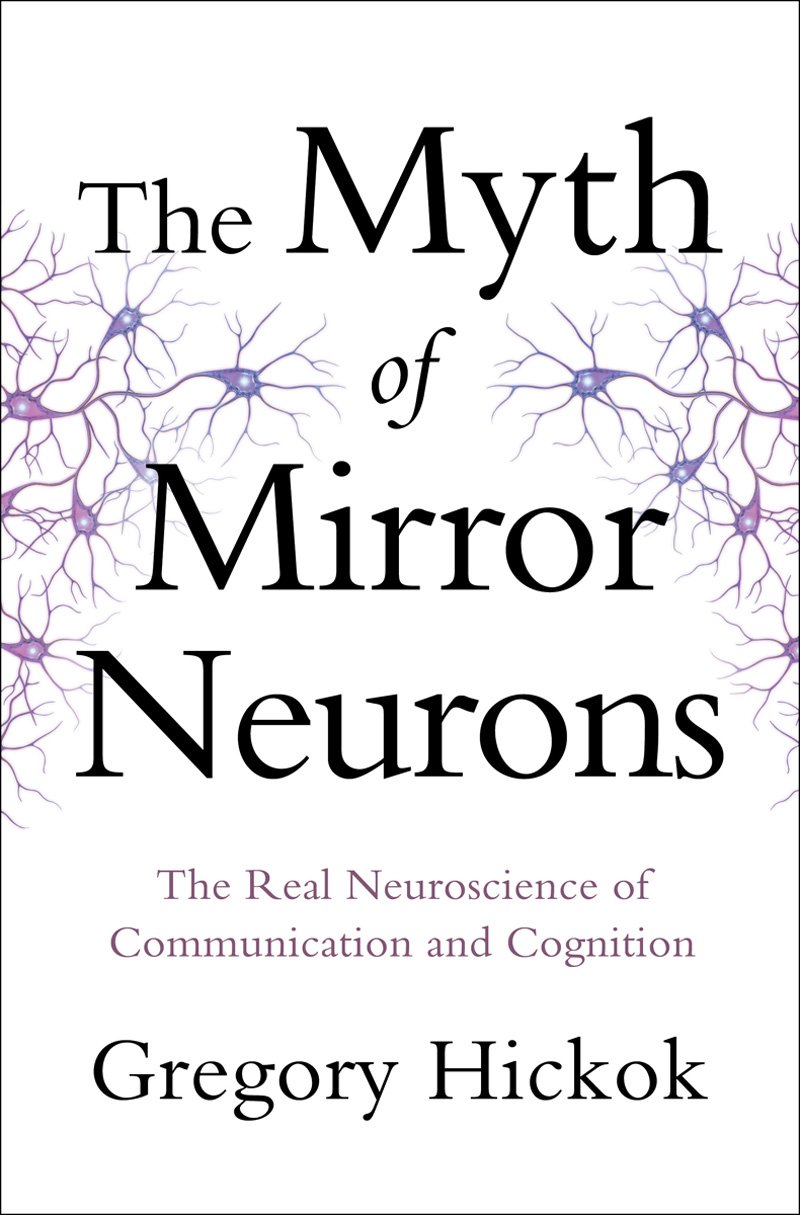(Warning: A bit of shameless self-promotion follows, but you might be interested anyway.)
 My forthcoming book, The Myth of Mirror Neurons: The Real Neuroscience of Communication and Cognition is now available for pre-order on Amazon.
My forthcoming book, The Myth of Mirror Neurons: The Real Neuroscience of Communication and Cognition is now available for pre-order on Amazon. You had to know this was coming given my obsession with, and frustrated rantings about mirror neuron theory in many posts on this blog. Writing this book (my first) was a really fun and interesting experience. It forced me to look deeply not only into data and theory concerning mirror neurons and the human mirror system but well beyond it in areas that the mirror neuron phenomenon has touched: imitation, embodied cognition, theory of mind, autism, empathy, and lots more. I actually learned quite a lot. In the end, the book is about the cognitive neuroscience of communication and cognition more broadly, using mirror neuron theory as a theme.
For those of you who think this might be nothing more than a destructive barn-kicking exercise, rest-assured, it's more than that (although I do my share of kicking). I spend a good deal of space in the book developing alternative's to the Parma story using their own data and talking about a lot of other relevant phenomena and theoretical ideas.
The book is written to be accessible to a broad audience but I wanted it to be a serious book and was pretty anal about being scientifically rigorous with lots of detail and citations for practicing scientists. I hope that the endorsements from Steve Pinker, Gary Marcus, and Pat Churchland mean that the book has academic value. On the general audience side the one early review from the trade book world has been positive (whew!), although it highlights only the barn-kicking aspect (oh well). From Publishers Weekly:
Hickok, professor cognitive science at the University of California, Irvine, frames his book around a straightforward question: "How is it possible that a cell in the motor cortex of a monkey can provide the neural blueprint for human language, empathy, autism, and more?" His answer, presented with great clarity and detail, is equally straightforward: it can't. Hickok balances his exploration of the hype surrounding the importance of mirror neurons with a careful analysis of the scientific literature, always attempting to ensure that conclusions are well supported by available data. In fact, he firmly believes that conclusions have far outpaced data. When he take on the assertion that problems with mirror neurons are the cause of autism, he does not sugarcoat his finding that "the broken mirror hypothesis does not fare well in light of empirical facts." He is equally confident that mirror neurons have not provided clues to the evolution of language, empathy, or theory of mind. Hickok's skepticism toward the claims associated with mirror neurons began when he taught a course on the subject, and thanks to those origins his impressive handling of basic neuroscience makes a complex topic understandable to the general reader as he delves into cutting-edge science. -Publishers Weekly, May 5 2014, p. 50As always, I welcome feedback from the blogosphere. In fact, my ideas were shaped to some extent by interactions with people commenting on my many posts, so I owe all you commenters a big thank you.
4 comments:
Maybe not a public endorsement, but Chomsky liked it too, right? That might get me to read the book; not at all the fact that my advisor wrote it ;)
I had a chance to read the book in draft form - and it's just terrific. Folks should run, not walk, to the bookstore or Amazon-browser-window and get it right away. It's engaging, thorough, funny, harsh, informative, useful -- a really excellent book. Congrats, Greg!
Great! Can not wait to check it out, any idea when it will be out?
They say it will be out August 18.
Post a Comment